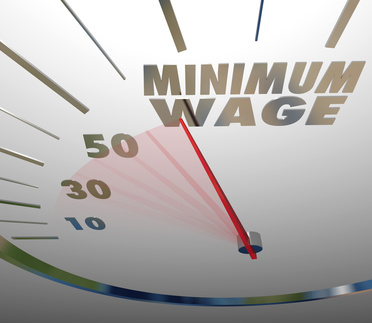Many were quick to celebrate when a New York state panel recently recommended a minimum wage increase to $15 an hour. The recommendation capped off an effort by the so-called “Fight for $15” group that has been working around the country since 2012 to raise the minimum wage.
But that celebration may be a bit premature.
The $15 minimum wage was decided by unelected bureaucrats and is only for employees of fast food restaurants. Neither legislators nor voters had a say in a recommendation that will affect employees’ jobs, paychecks and families. And minimum wage earners at places like day cares, furniture stores and gas stations would stay at rates set by current law (up to $9 in December.) The resulting divide between different minimum wage levels could set the stage for future protests and lead to further government involvement in the relationships between employers and employees.
No one would argue that workers deserve fair pay for their work. But whenever government makes employees more expensive, there are consequences government fails to consider. A business owner who has the same amount of money coming in the door (through customer sales) has to figure out how to pay more money going out the door (wages, salaries and other overhead costs like utilities.)
One increasingly common cost-saving strategy is automation. How many grocery stores now have self checkout? Or restaurants with mobile apps for ordering and paying? Or kiosks to handle money transfers? With higher mandated wages for humans, technology-based labor may be worth the upfront cost to a lot more companies. After all, machines don’t take vacation or sick time. Nor do they need health insurance.
Robots or not, even the government’s own budget office says forced minimum wage increases will result in fewer jobs.
The Congressional Budget Office said in a report last year that raising the rate to even $10.10 would lead to as many as 500,000 fewer jobs:
“Raising the minimum wage would increase family income for many low-wage workers, moving some of them out of poverty. But some jobs for low-wage workers would probably be eliminated and the income of those workers would fall substantially.”
Unfortunately, many of those lost opportunities would be for the people who need those jobs the most – younger, lower-skilled and lower-educated folks looking for that first rung on the workplace experience ladder.
To learn more about the minimum wage and its impact on entry-level workers, watch our video, “What gets lost when you raise the minimum wage?”
And watch “Does the minimum wage prevent poverty?” for the impact of wages on poverty.



